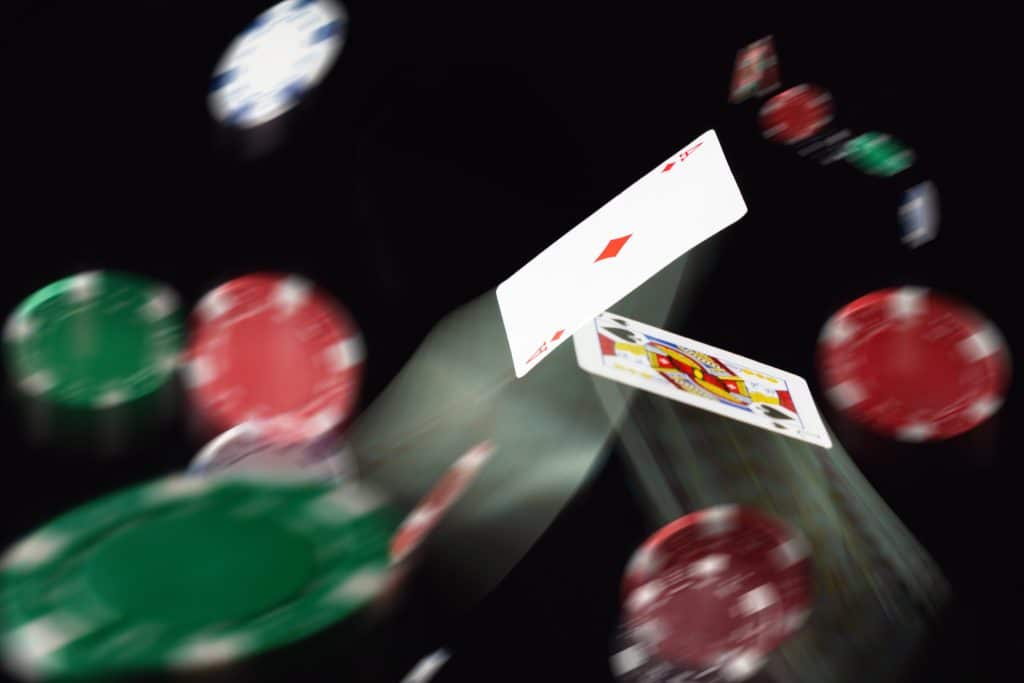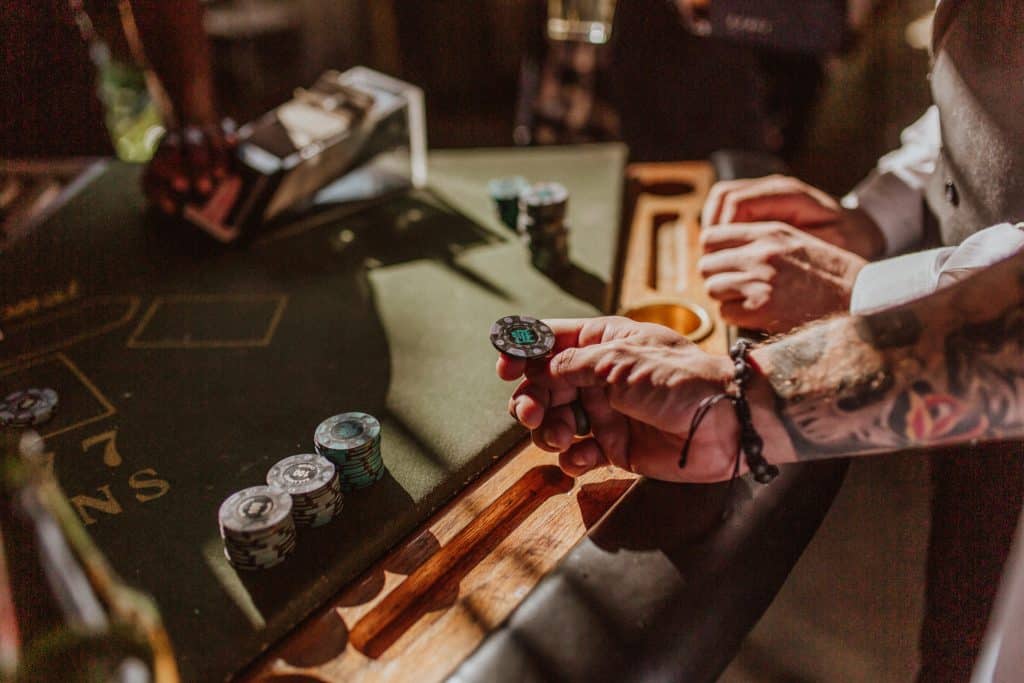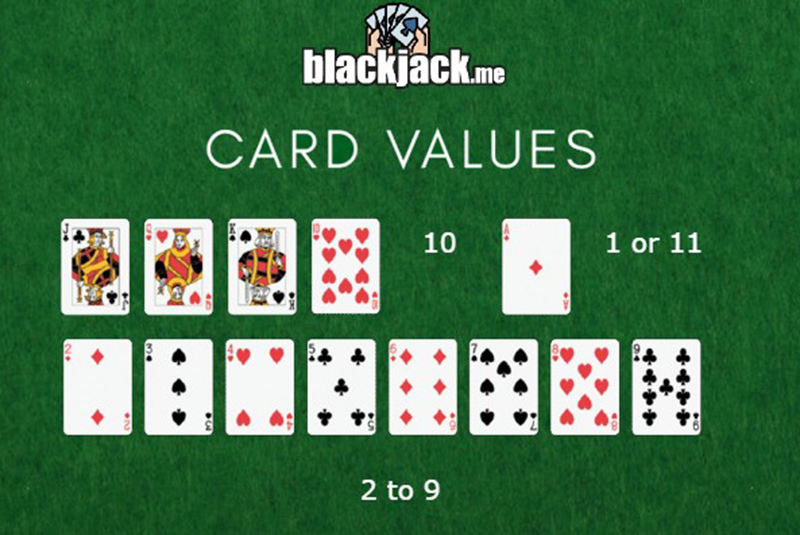Blackjack is a timeless card game that has captured the hearts and minds of gamblers worldwide. Its allure lies not only in the thrill of the game but also in the potential to outwit the casino and walk away a winner. While luck plays a significant role in any casino game, understanding the mathematics and probabilities behind blackjack can give you a strategic edge that sets it apart from other forms of gambling.
In this blog post, we’ll take a deep dive into the world of blackjack mathematics and probability. We’ll explore how the game is structured, the role that chance plays in its outcomes, and the critical concept of the “house edge.” We’ll also delve into the strategies and decisions that can tip the odds in your favor and increase your chances of success at the blackjack table.
Probability in Blackjack
Understanding the probabilities involved is essential for making informed decisions and improving your chances of success at the blackjack table.
1. The Role of Probability
Probability is at the heart of blackjack. Every decision you make in the game is influenced by the likelihood of various card combinations appearing. Here are some key points regarding probability in blackjack:
- The composition of the deck(s) significantly affects the probabilities. As cards are dealt, the remaining deck changes, impacting the likelihood of drawing specific cards.
- Probability plays a crucial role in decisions like hitting, standing, doubling down, or splitting. These decisions are based on the estimation of the probabilities of improving your hand or the likelihood of the dealer busting.
- While blackjack is a game of skill and strategy, it is also subject to the laws of probability. Skilled players use their knowledge of probabilities to make optimal choices.
2. Calculating Probabilities in Blackjack
Calculating probabilities in blackjack can be complex due to the number of variables involved. Such as the number of decks in play and specific rule variations. Some important probabilities to consider include:
- Probability of a Blackjack: This is the likelihood of being dealt an Ace and a 10-point card as your initial two cards. It’s a rare but highly desirable occurrence.
- Probability of Busting: Knowing the chance of busting (going over 21) when taking another card is crucial for deciding whether to hit or stand.
- Probability of Drawing Specific Cards: Estimating the probability of drawing a specific card, such as a 7 or a 9, can influence decisions in various situations.
- Probability of Dealer’s Bust: Understanding the likelihood of the dealer busting based on their upcard is vital when deciding how aggressively to play your hand.
3. The House Edge and Probability
The concept of the “house edge” is closely tied to probability in blackjack. The house edge represents the casino’s statistical advantage over players in the long run. It’s determined by the game’s rules and the probabilities associated with various outcomes.
- A lower house edge is favorable for players because it means the casino has less of an advantage.
- Players can use knowledge of probabilities to make decisions that reduce the house edge, such as following basic strategy and employing card counting techniques.
4. Basic Strategy and Probability
Basic strategy in blackjack is a set of optimal plays based on the player’s hand and the dealer’s upcard. It’s developed through extensive simulations and calculations of probabilities.
- Basic strategy maximizes the player’s chances of winning by making the statistically best decisions in each situation.
- It takes into account the probabilities of busting, improving your hand, and the likelihood of the dealer’s final hand.
The House Edge
In the world of casino gaming, understanding the concept of the “house edge” is crucial for players seeking to make informed decisions and improve their chances of success. In blackjack, as in other casino games, the house edge is a fundamental concept that directly influences the odds of winning or losing. Let’s delve into what the house edge is, how it’s calculated, and how it impacts your blackjack experience.
1. Defining the House Edge
The house edge, often expressed as a percentage, represents the casino’s built-in advantage over players in any given game. It’s a statistical measure of the casino’s expected profit from each bet placed by players over time. In blackjack, the house edge arises from several factors:
- The rules of the game, such as when the dealer hits or stands.
- The number of decks in play.
- The payout ratios for various outcomes, including blackjack.
2. Calculating the House Edge
The specific calculation of the house edge in blackjack can vary depending on the rules and variations of the game. However, here are the general steps involved in calculating it:
- Analyze the game’s rules: Identify key rules, such as whether the dealer hits or stands on a soft 17, whether surrender is allowed, and the payout for blackjack.
- Estimate the probabilities: Use mathematical models to estimate the probabilities of different outcomes, including player wins, dealer wins, and ties.
- Determine the expected value: Calculate the expected value for each possible outcome based on the probabilities and payouts.
- Calculate the house edge: The house edge is derived by subtracting the sum of the expected values for all player wins from 100%. This represents the portion of each bet that the casino expects to retain as profit.
3. Impact of House Edge in Blackjack
Understanding the house edge is vital for players because it:
- Informs Strategy: Knowledge of the house edge helps players make informed decisions based on the game’s rules and their specific situation. Basic strategy, which minimizes the house edge, is developed with this understanding.
- Sets Realistic Expectations: Players should be aware that, in the long run, the house is statistically favored to win a certain percentage of each bet. This helps manage expectations and avoid chasing losses.
- Chooses Favorable Variants: Different blackjack variants have varying house edges due to rule differences. Knowing which variants have lower house edges can be advantageous for players.
4. Reducing the House Edge
While the house edge is always present, players can reduce its impact by:
- Using Basic Strategy: Following basic strategy, which prescribes optimal decisions for every hand, minimizes the house edge to its lowest possible value.
- Card Counting: Skilled players can employ card counting techniques to gain an advantage by adjusting their bets based on the composition of the remaining deck.
- Choosing Favorable Rules: Selecting blackjack tables with player-friendly rules, such as those that allow late surrender or have fewer decks, can lower the house edge.

Odds of Winning Specific Scenarios
In the dynamic game of blackjack, understanding the odds of winning in specific situations is key to making informed decisions and maximizing your chances of success. Let’s explore some common in-game scenarios and the associated probabilities to help you make optimal choices at the blackjack table.
1. Probability of Winning a Hand
- The probability of winning a single hand in blackjack depends on various factors, including your initial hand and the dealer’s upcard.
- For example, if you have a strong starting hand like a blackjack (Ace and a 10-value card), the probability of winning is very high, typically close to 100%.
- When your initial hand is weak, such as a 12-16, your chances of winning are lower. The probability of busting if you hit further complicates your decision.
2. Probability of Busting
- Knowing the likelihood of busting (going over 21) when taking another card is crucial when your hand is less than desirable.
- For instance, if you have a hand totaling 12-16, taking another card carries a significant risk of busting. These scenarios require careful consideration of the dealer’s upcard.
3. Doubling Down Probability
- Doubling down is a strategy where you double your original bet and receive only one more card.
- The decision to double down is influenced by your hand value and the dealer’s upcard. For instance, doubling down with a strong 9-11 hand against a weak dealer upcard can be advantageous.
4. Splitting Pairs Probability
- Splitting pairs, when you’re dealt two cards of the same rank, is another strategic option in blackjack.
- The probability of successfully splitting and creating two strong hands depends on the specific pair and the dealer’s upcard.
5. Dealer’s Bust Probability
- Understanding the likelihood of the dealer busting is crucial for determining your strategy.
- If the dealer’s upcard is a 4, 5, or 6 (weak cards), there’s a higher probability they’ll bust if they hit.
6. Probability of a Push (Tie)
- A push occurs when your hand and the dealer’s hand have the same value, resulting in a tie, and your bet is returned.
- The probability of a push increases when both you and the dealer have hands with a total close to 21.
7. Overall Winning Probability
- The overall probability of winning a session of blackjack depends on a combination of individual hand outcomes, including wins, losses, and pushes.
- Strategies such as basic strategy aim to maximize your overall winning probability by making statistically sound decisions in each hand.
Summarize
In the world of casino gaming, few games are as captivating and strategic as blackjack. Through this journey into the intricacies of blackjack mathematics, probability, and the concept of the house edge, you’ve gained valuable insights that can enhance your playing experience and potentially tip the odds in your favor.
As you embark on your blackjack journey armed with these insights, remember that each hand is a unique challenge, and no strategy can guarantee success every time. However, by mastering the mathematics, probabilities, and strategies of the game, you’ll be better equipped to make sound decisions and savor the excitement that blackjack offers.
Whether you’re sitting at a physical blackjack table in a casino or enjoying the game online, may your future hands be filled with favorable odds, strategic choices, and, of course, the thrill of the game. Enjoy your adventures in the world of blackjack, and may they be both entertaining and rewarding.



